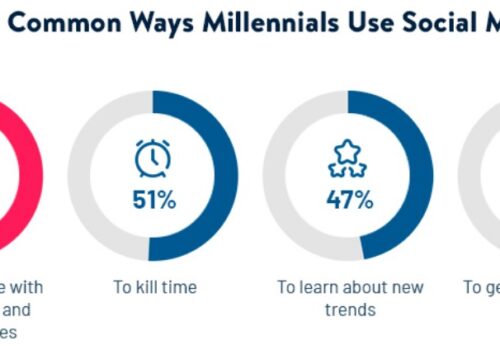CRM, which stands for Customer Relationship Management, is a technology that helps businesses manage their interactions with customers.
It’s like a digital assistant for keeping track of customer information, communication, and sales.
In this article, I’ll delve into some important CRM statistics, giving you a glimpse into how businesses use CRM to improve customer relationships and boost their success.
| Category | Statistic | Source |
|---|---|---|
| CRM ROI Statistics | Businesses see an average return of $8.71 for every $1 invested in CRM. | martech.zone |
| CRM solutions may boost income per salesperson by 41%. | martech.zone | |
| 92% of companies claim CRM software was crucial to achieving their sales targets. | webinarcare.com | |
| CRM Sales Statistics | 55% of salespeople using CRM achieved their quota. | martech.zone |
| CRM technology can improve sales forecasting accuracy by 42%. | webinarcare.com | |
| 65% of mobile CRM sales representatives meet their sales goals. | financesonline.com | |
| CRM Customer Experience Statistics | 78% of customers are more likely to purchase from a company that offers personalized services. | webinarcare.com |
| 73% of consumers cite customer experience as a crucial factor in their purchasing decisions. | martech.zone | |
| CRM Benefits Statistics | Using CRM software can minimize lead costs by 23%. | webinarcare.com |
| Customer retention can increase by 27% using CRM software. | martech.zone | |
| 74% of companies claim that CRM software has enhanced their access to customer information. | webinarcare.com | |
| CRM Usage Statistics | 55% of American companies utilize CRM solutions. | financesonline.com |
| 81% of CRM users utilize multiple devices to access their CRM. | martech.zone | |
| CRM solutions are used by 82% of businesses for process automation and sales reporting. | grandviewresearch.com | |
| CRM Adoption Statistics | Within the first five years of operation, a CRM is used by 65% of businesses. | webinarcare.com |
| 94% of CRM users seek contact management tools in their CRM software. | martech.zone | |
| CRM Industry Trends | The global CRM software market size is forecasted to reach $80 billion by 2025. | grandviewresearch.com |
| The U.S. CRM market produced $35 million in sales in 2022. | statista.com |
Some of the Most Impressive CRM Statistics You Need to Know in 2026
CRM ROI Statistics
The return on investment (ROI) from implementing a successful CRM system can be substantial. A study found that businesses typically see an average of $8.71 returned for every dollar invested in a CRM system.
Additionally, the same research found that businesses typically saw a return of $5.60 for every dollar invested in customer service automation tools.
- CRM solutions may boost income per salesperson by 41%.
- 92% of companies claim that CRM software was crucial to attaining their sales targets.
- Using CRM software may improve income by 245%.
- CRM software may boost conversion rates by 300%.
- For every $1 invested, CRM typically returns $8.71 in profit.
Source: martech.zone
CRM Sales Statistics
Sales teams have seen tremendous success when utilizing the full potential of their CRMs. A survey found that 55% of salespeople using a CRM achieved their quota compared to just 29% who did not use one.
Additionally, sales teams using a CRM closed an average of 36 deals per year compared to just ten deals per year for those without one.
- Sales might rise by 29% when CRM software is used.
- 32% of sales representatives claim to spend more than an hour every day manually entering data.
- CRM technology can improve sales forecasting accuracy by 42 percent.
- For 48% of businesses, increasing the effectiveness of their sales funnels is a key sales priority.
- 65% of mobile CRM sales representatives meet their sales goals.
- More sales being closed is, according to 75% of businesses, a high objective.
- Sales may increase by 87% when utilizing mobile CRM software.
- The most well-liked sales tools for companies include email interaction, social prospecting, and CRM software.
Source: martech.zone, financesonline, webinarcare
CRM Customer Experience Statistics
A well-implemented CRM system helps companies provide an enhanced customer experience by offering personalized services and improving communication channels with customers.
According to a 2019 survey, 78% of customers said they were more likely to purchase from a company that offered personalized services. Additionally, 71% of respondents in the same survey stated that good customer service was the main factor for making them loyal to a company.
- 16% of American businesses think that providing real-time consumer interactions across all touchpoints is successful.
- Businesses claim that growing income from existing clients is their top marketing focus in 44% of cases.
- CRM software, according to 47% of organizations, significantly affects client retention.
- Artificial intelligence (AI), according to 48% of customers between the ages of 18 and 24, improves the customer experience.
- Loyal consumers spend 67% more than new customers do.
- Businesses claim that turning contacts into customers is their top marketing objective, according to 69% of them.
- When consumers interact with a business, 69% of them anticipate a connected experience.
- 73% of consumers cite client experience as a crucial element in their decision-making.
- Customer satisfaction may rise by 74% when utilizing mobile CRM software.
- 78% of clients anticipate consistent departmental engagement.
- 80% of customers prefer to make purchases from businesses that provide a customized experience.
- Consumer loyalty is higher for businesses with robust data security measures (84%).
- Consumers feel that a company’s experience is equally as essential as its goods and services, according to 84% of respondents.
- 90% of users think that personalizing a website increases its attractiveness.
- Profits may rise by 95% with a 5% increase in client retention.
- 20% of the overall market value for CRM is made up of income from customer services.
- One of the main factors mentioned in the development of the CRM industry is the significance of comprehending consumer behavior and preferences.
Source: martech.zone, financesonline, webinarcare, grandviewresearch, statista
CRM Benefits Statistics
Utilizing a CRM system offers businesses numerous benefits in terms of cost savings and improved efficiency. A study found that companies using a CRM system experienced an average reduction in customer acquisition costs by as much as 28%.
The same research also found that businesses saw an increase in productivity with the use of CRMs, with up to 37% fewer customer support calls being handled per day.
- By using client data, you can cut your sales cycle by 14%.
- Using CRM software may minimize lead costs by 23%.
- Customer retention may increase by 27% using CRM software.
- Using CRM software may enhance productivity by 34%.
- 39% of companies claim that utilizing CRM software has enhanced their upselling and cross-selling activities.
- Report accuracy may rise by 42% when utilizing CRM software.
- 45% of companies claim that utilizing CRM software increases their sales revenue.
- Mobile CRM software increased productivity for 50% of firms.
- CRM technology has the potential to improve sales agents’ ability to communicate by 57%.
- 60% of companies said that utilizing a CRM platform increased their productivity.
- Process efficiency may rise by 73% when employing mobile CRM software.
- 74% of companies claim that CRM software has enhanced their access to client information.
CRM Usage Statistics
The usage of CRM systems in businesses has seen a significant increase over the past few years. According to a 2020 survey, 32% of organizations reported using CRM software, a massive increase from just 11% in 2019.
Additionally, the research found that 17% of companies had plans to implement a CRM system within the next three months.
- CRM users in the banking and financial sector make up about 7% of all users.
- CRM adoption in the manufacturing sector is 13%.
- CRM use in the IT sector is 13%.
- The retail business accounts for 18% of CRM users.
- CRM users in the professional services sector make up 32% of all users.
- 44% of companies score leads using their CRM software.
- 44% of firms integrate marketing automation with their CRM platform.
- 46% of businesses handle quote and proposal form submissions using their CRM platform.
- 46% of sales teams claim to use CRM systems often.
- Email marketing is used by 50% of firms on their CRM platform.
- 52% of businesses use their CRM software for managing their calendars.
- 55% of American companies utilize CRM solutions.
- 79% of companies use a CRM.
- Effective sales firms are 81% more likely to continuously use CRM software.
- 81% of CRM users utilize numerous devices to access their CRM.
- CRM solutions are used by 82% of businesses for process automation and sales reporting.
- Businesses employ cloud-based CRM software in 87% of cases.
- CRM solutions are used by 91% of companies with ten or more workers.
- CRM is one of the top three technologies for personalizing consumer interactions to increase brand loyalty and return on marketing expenditures (ROI)
- The primary factor driving growing investment in CRM software is scaling customer-centered choices and activities.
Source: martech.zone, financesonline, webinarcare, grandviewresearch, statista
CRM Adoption Statistics
The adoption of CRM systems among different industries is steadily increasing due to its many benefits and ease of use.
The research found that 53% of B2C and B2B companies had adopted CRMs in 2020, an increase from 43% in 2019. Additionally, 59% of retail businesses and 57% of IT & telecom organizations were using CRMs as well.
- The existing platform is too pricey; 6% of organizations are moving to a new CRM.
- The existing platform does not offer adequate customer assistance, and 9% of firms move to a new CRM.
- The present platform cannot accommodate the growth of their company; 13% of companies transfer to a new CRM.
- One of the top sales goals for 13% of firms is purchasing a CRM platform.
- 14% of businesses claim that when buying CRM software, the cost is the most crucial consideration.
- 20% of businesses cite usability as the most crucial consideration when buying CRM software.
- Due to the difficulty of using their present platform, 22% of firms migrate to a new CRM.
- Functionality is cited by 24% of businesses as being crucial when choosing a CRM platform.
- Due to the lack of support for their existing platform, 28% of firms migrate to a new CRM.
- 30% of companies claim that completing agreements is their biggest sales issue.
- Multiple decision-makers in the purchasing process are cited by 31% of companies as their greatest sales issue.
- 40% of companies claim that their biggest sales issue is generating responses from prospects.
- Within the first five years of operation, a CRM is used by 65% of businesses.
- Because their existing platform does not have the functionality they need, 66% of firms transfer to a new CRM.
- In their CRM software, 88% of users seek interaction tracking tools.
- In their CRM software, 94% of users seek contact management tools.
CRM Industry Trends
The CRM industry is expected to continue expanding in the coming years. According to a 2020 market insight report, the global CRM software market size was estimated at $48 billion in 2020 and is forecasted to reach $80 billion by 2025.
This represents an approximate compound annual growth rate (CAGR) of 10% between 2021 and 2025.
- In 2022, it is anticipated that companies will spend 12% of their marketing budgets on CRM software.
- The value of the CRM market is anticipated to increase by 13% a year between 2022 and 2030.
- CRM systems are seen as the most valuable software by 57% of firms.
- 50% of the market value for CRM is accounted for by CRM cloud revenue.
- The U.S. CRM market will produce $35 million in sales overall in 2022.
- The value of the worldwide mobile CRM market is $15 billion.
- The CRM market will be worth $69 billion in 2021.
- By 2028, it is anticipated that the CRM market will be worth $146 billion.
- The digital marketing software with the quickest growth rate is CRM.
- CRM is the fastest-growing software in digital marketing.
- $146 billion is the expected CRM market value by the year 2028.
- $69 billion was the total value of the CRM market.
- $15 billion is the global mobile CRM market value.
- $35 million is the total CRM market revenue generated in the U.S. in 2022.
- CRM cloud revenue accounts for 50% of the total CRM market value.
- 57% of businesses perceive CRM platforms as the most valuable software.
- 13% is how much the CRM market value is expected to grow per year from 2022 to 2030.
- 12% of a company’s marketing budget is expected to be spent on CRM software in 2022.
FAQs
👉 What are some important CRM statistics I should know in 2024?
Some important CRM statistics to know in 2024 include the average ROI from a successful CRM system ($8.71 for every dollar invested), the number of deals closed by sales teams using a CRM (36 per year), and the estimated size of the global CRM software market by 2025 ($80 billion).
🤔 How can I benefit from using a CRM system?
You can benefit from using a CRM system in numerous ways, such as by reducing customer acquisition costs, increasing productivity, improving communication with customers, and offering personalized services. Additionally, you could see an improved return on investment (ROI) from implementing and utilizing your CRM system effectively.
✔️ How likely are customers to purchase from a company that offers personalized services?
According to a 2024 survey, 78% of customers said they were more likely to purchase from a company that offered personalized services. Additionally, 71% of respondents in the same survey stated that good customer service was the main factor for making them loyal to a company.
👀 What is the estimated global CRM software market size by 2025?
The global CRM software market size was estimated at $48 billion in 2020 and is forecasted to reach $80 billion by 2025, representing an approximate compound annual growth rate (CAGR) of 10% between 2021 and 2025.
Quick Links:
- Graphic Design Statistics, Insights, and Trends
- Browser Statistics, Facts, and Figures
- Online Learning Statistics
- Generation Z Statistics
- Ecommerce Statistics
Conclusion: CRM Statistics 2026
From increased efficiency and cost savings to improved customer experience and stronger relationships, CRMs offer immense benefits for businesses, large or small.
CRM statistics reveal the significant impact of Customer Relationship Management technology on businesses. They show how companies use CRM to enhance customer interactions, increase sales, and ultimately achieve greater success.
Staying updated on the latest impressive CRM statistics can help you stay ahead of your competition in 2026.






